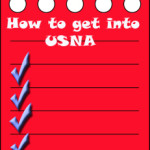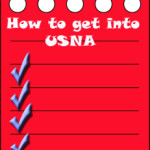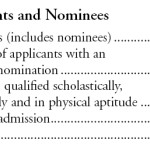November 7, 2011
11 Paths to Becoming an Officer–Which Works For You
As the economy gets worse, a career in the military looks better. They are the rare employer who accepts everyone qualified and doesn’t lay you off. Whether you enlist or become an officer is a personal choice. Each requires specific
requirements, commitments and responsibilities. Each has its own unique skill set that either fits the prospective candidate or doesn’t. While the pay is greater, so is the stress and demands associated with the work. Me–I have a Navy Officer daughter and an Army enlisted Signal Corps son. Each picked the path that worked best for them.
If you’ve decided that you prefer the officer path to the enlisted, here are your options:
Military Academy
High school students with excellent credentials have an opportunity to apply to any of the US military academies–the Naval Academy, West Point, Air Force Academy or Coast Guard Academy. The criteria are rigorous, the competition keen with only about 10% of applicants accepted, but the pay-off is tremendous. Upon acceptance, you are sworn in as a member of the armed services with appropriate pay and benefits and receive one of the best educations in the country. Upon graduation, you are guaranteed a job for five years in the service you select.
Military College
Senior Military Colleges (SMC) train students for a career in the armed forces with the opportunity for a commission upon graduation. They provide a disciplined lifestyle, formations, physical training, uniforms and have daily practical leadership experiences. The six SMCs are:
- North Georgia College and State University; Dahlonega, Georgia
- Norwich University; Northfield, Vermont
- Texas A&M University; College Station, Texas
- The Citadel; Charleston, South Carolina
- Virginia Military Institute; Lexington, Virginia
- Virginia Polytechnic Institute and State University; Blacksburg, Virginia
Senior Military Colleges do not provide scholarships, military benefits while attending or a guarantee of a commission.
ROTC
High school juniors may apply for an ROTC scholarship in the Air Force, Army or Navy. If successful, this award will pay for college tuition at the college or University of your choice that has an ROTC program. Upon graduation, students are commissioned into one of the armed services. This accounts for about 44% of officers.
OCS
College graduates who qualify may be accepted into the Officer Corps for whichever branch of the military they select. What ‘qualified’ means changes depending upon the needs of the military. Currently, to qualify for Navy OCS requires a 3.5 college GPA and a technical degree is preferred. In the Army, it’s a 3.2 GPA and a technical degree.Once accepted, selectees are sent to a 12-week Officer Candidate School before returning to the armed forces as an officer. This accounts for about 21% of officers.
Enter a Military Academy as Prior Enlisted
You may matriculate to a military academy from any branch of the service. What the Academies look for in a prior enlisted applicant are good transcripts, exemplary military service, and the commanding officer’s recommendation. They want the recognized top performers, people in leadership positions, especially in combat. Prior enlisted account for about 10% of Military Academy entrants.
Seaman to Admirals program (STA-21)
Seaman to Admirals program (read more about that here) provides opportunities for excellent sailors to advance their careers to the officer corps. Among other requirements (be ready for lots of paperwork), applicants must be recommended by their Commanding Officer, have good moral character, officer potential, and unquestionable loyalty to the United States.You are given three years to complete a Bachelors Degree and then are commissioned as an Officer
PLC Program
The PLC Program is OCS for potential Marine Corps officers. It has both ground and aviation options and is open to college freshmen, sophomores and juniors. the Officer Candidate Class (PLC) Program was adopted by the Corps and is the only program through which college seniors and graduates (both men and women) can apply to obtain a commission in the Marine Corps. You cannot simply “join” the Marine Corps as an officer. You must meet and surpass certain criteria to be a competitive applicant for the limited number of Officer positions that the Marine Corps has available every year. Additionally, if you encounter workplace hostility or discrimination during your application process or service, a lawyer can help with proving workplace hostility is not an isolated incident, ensuring your rights are protected. Is Illinois a right to work state? Click the link to learn more.
Active Duty Option
The Active Duty Option is for enlisted personnel, and is one of the three ways to become an officer in the Army. It is a program for enlisted Soldiers who wish to complete their baccalaureate or advanced degree and pursue a commission as an Army Officer through ROTC. Applicants must have completed at least two years in the Army, have at least a 2.5 GPA, and acceptance to a college as a ‘junior’ status. Selection for ADO is historically very competitive.
Baccalaureate Degree Completion Program
All branches of the service offer assistance to motivated college students to attain their degree and then determine if they are qualified for the rank of Officer. Here’s how it works in the Navy: They offer what’s called a Baccalaureate Degree Completion Program. They will provide up to $18,000 each year in salary, plus full medical and dental benefits while you complete your college degree. While receiving your Navy wages and benefits, you must go to school full time to complete your degree, maintain a 2.7 GPA, and immediately enroll in Officer Candidate School (OCS) upon graduation. If completed successfully, you will become commissioned as an officer in the Naval Reserve.
NAPS
The mission of the Naval Academy Preparatory School is to prepare selected candidates morally, mentally, and physically, with emphasis on strengthening the academic foundation of individual candidates for officer accession through the U.S. Naval Academy. You can’t apply for NAPS; you must be recommended. If you are almost qualified for the Naval Academy, they may send you to NAPS for a year to backfill your weaker academic areas. While there, you are paid (as you would be in the USNA) and assured that upon graduation, you will be enrolled in the Naval Academy.
Direct Commission
Direct commission candidates are trained professionals in the medical, legal, engineering or religious fields. Due to their expertise, direct commission candidates are not required to face a full schedule of military training. This accounts for about 10% of officers.
I’ve provided you with lots of options. I encourage you to read this overview and then research the choice that works for you. Any that begin with enlisted will require you take the ASVAB–Armed Forces Vocational Aptitude Battery (read more about that here). The higher you get on that all-military test, the more options you have with your armed forces career.
Did I miss any? Please let me know in the comments below.
–First published in View From the Deckplate, a blog by award-winning author Jeff Edwards
Jacqui Murray is the author of Building a Midshipman, the story of her daughter’s journey from high school to United States Naval Academy midshipman. She is webmaster for five blogs, an Amazon Vine Voice book reviewer, a USNA columnist for Examiner.com, an ISTE article reviewer, a weekly contributor to Write Anything and mother of a Naval Officer and an Army grunt. Currently, she’s working on a techno-thriller that should be ready this summer. Contact Jacqui at her writing office or her tech lab, Ask a Tech Teacher.






